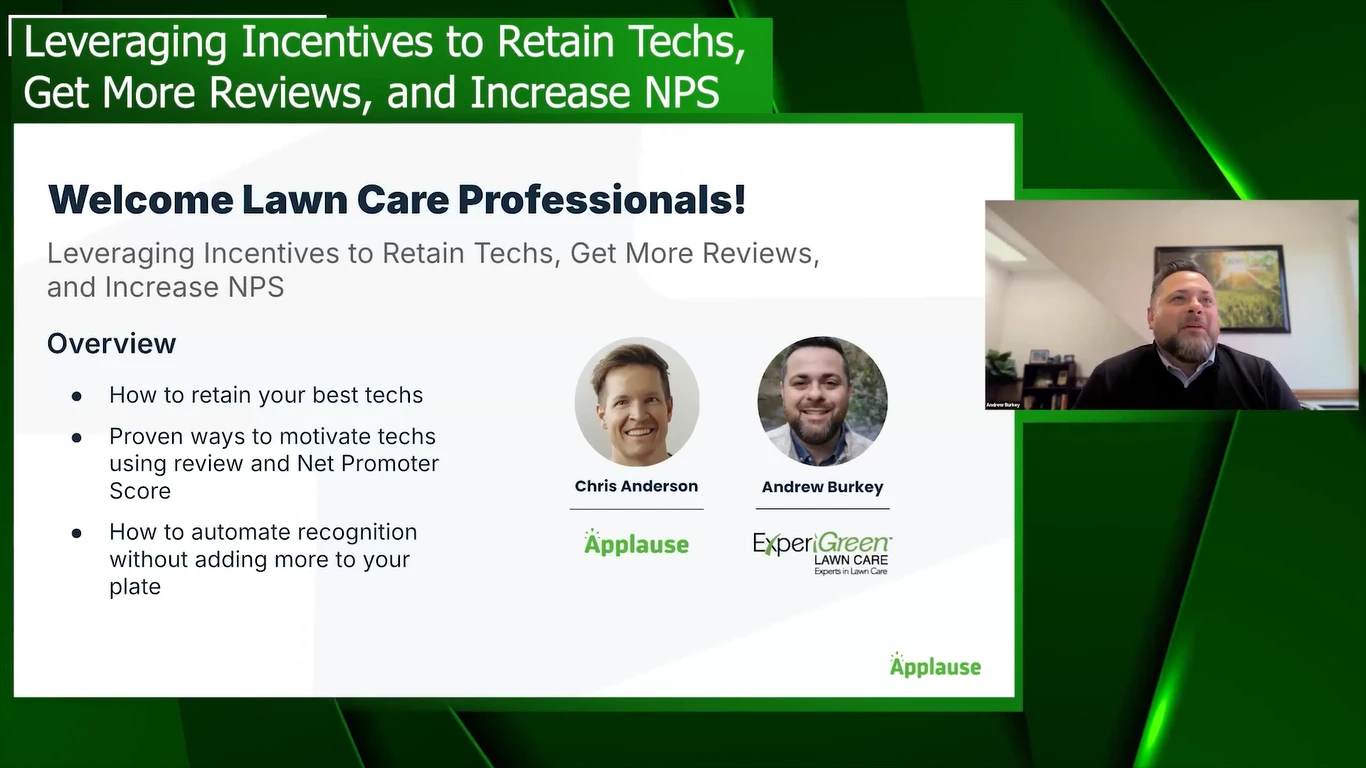| Millennium Grounds & Waters |
|
Vice President/General Manager: Golden Begley Operations Manager: Joe Haynes Location: Winter Garden, Fla. Established: 2007 2008 Revenue: $2.3 million Customer/Service mix: 5% residential, 95% commercial; maintenance, lawn care, irrigation and tree services Employees: 33 Pricing philosophy: Constant communication with customers helps protect business. |
E-mail is the ticket to efficient communication at Millennium Grounds & Waters. Managers are equipped with BlackBerries, and commercial customers can send messages to a “manager inbox” that reaches all five leaders.
“It’s a system of checks and balances,” explains Golden Begley, who took a three-year hiatus from the green industry and relaunched his business in late 2007 with two partners: his father, Bruce Begley, and Joe Haynes, who heads operations.
“The manager responsible for the e-mail prints it out, puts in a work order and takes care of the issue,” Begley continues. “The next day, managers who received the e-mail are checking in with each other to make sure it was addressed.”
Customers love the electronic trail and instant response. Managers like winning points with clients, who don’t forget the service come bidding time.
So far, Millennium Grounds & Waters has not lost a single client during the commercial bidding process for commercial-residential accounts such as homeowners associations (HOA). They are never the lowest-priced option. Single-family residential accounts tend to be more volatile in their Florida market, Begley says. “We have lost a few of those to lowballers, but the majority of our residential customers have stayed on board with us and refer us to friends.”
Also, the company is vocal about its licensing and the fact that it holds appropriate insurance. Not all competitors are covered. “If a competitor is uninsured and doesn’t have workers’ compensation, that is a liability,” Begley will explain to clients. “That is a risk for an HOA.”
Begley sees more price cutting in the market these days. “Companies are hungry for work, therefore prices are dropping,” he relates. “Unfortunately, quality is dropping, as well. Also, many competitors are unlicensed and unprofessional.”
Begley will tabulate the cost of repairing a landscape that an irresponsible contractor ruins. When he shares this with clients, they listen up.
Lowballing “puts a value on good contractors,” adds Haynes. And as for the customers who opt to do business with these lowballers: “If a client is willing to leave you for $10 a month, then do you really want that customer in the long-run?” Haynes asks. “They will eventually leave you for other reasons.”
Some customers ask Millennium to match or beat a competitor’s price. “Nine times out of 10, our answer is no,” Haynes says. “And we still don’t lose the client. They just want to know if we’ll adjust the price.”
Other customers simply demand more information. Rather than setting a budget for irrigation repairs and allowing Millennium to work within that budget without getting permission for every fix, clients want work orders and explanations. “We have to give them an estimate, get an approval and then fix the problem,” Haynes says.
Haynes can tell when a customer has been burned in the past. Taking time to educate and explain estimates helps clients understand Millennium’s pricing compared to lowball competitors.
“I think lowballers are not getting the big picture,” Begley says. “They are in it for the short-term – six months, a year. We are building relationships with our customers, which in turn will lead to loyalty.”
The author is a freelance writer based in Bay Village, Ohio.

Explore the June 2009 Issue
Check out more from this issue and find your next story to read.
Latest from Lawn & Landscape
- PERC helps debut propane direct-injection fuel system at ACT Expo 2025
- Retargeting Ads – A Secret Weapon for Growing Your Lawn Care Business
- Leading a growing company
- Project EverGreen launches Clean Air Calculator
- Rain Bird acquires smart lawn care company OtO from Toronto
- PBI-Gordon names Marvin as VP of research and development
- Mean Green rolls out Vanquish Autonomous mower
- Focal Pointe launches new podcast series





